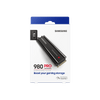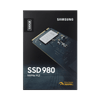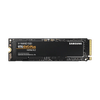Memory & Storage FAQs
1. What is the difference between RAM and storage?
RAM (Random Access Memory) is temporary memory that stores data and instructions for running programs. Storage, on the other hand, refers to the permanent memory where data such as files, software, and operating systems are stored (e.g., hard drives or SSDs).
2. What is the best type of storage for performance?
Solid-State Drives (SSDs) are the best option for performance. SSDs are faster than traditional Hard Disk Drives (HDDs) because they use flash memory to store data, leading to quicker read/write speeds, faster boot times, and better overall system responsiveness.
3. How much RAM do I need for general use?
For basic tasks like web browsing, office work, and media consumption, 8GB of RAM is sufficient. For gaming, video editing, or running multiple applications simultaneously, 16GB or more is recommended for smooth performance.
4. What is the difference between SSD and HDD?
SSD (Solid-State Drive) offers faster read/write speeds, lower power consumption, and higher durability as it has no moving parts. HDD (Hard Disk Drive) is slower, but it typically offers more storage space at a lower price point, making it ideal for mass storage.
5. What is the advantage of having more RAM?
More RAM allows your computer to handle more applications simultaneously and improves performance in multitasking scenarios. It also helps prevent slowdowns when running memory-intensive programs like video editors or games.
6. Should I get an SSD or HDD for my computer?
If speed is your priority, go for an SSD. It will significantly improve the overall speed of your system. If you need a large amount of storage for files and don't mind slower speeds, an HDD might be more cost-effective. Many people use a combination of both: an SSD for the operating system and frequently used applications, and an HDD for bulk storage.
7. What is NVMe storage?
NVMe (Non-Volatile Memory Express) is a protocol that works with SSDs and provides faster data transfer speeds compared to SATA-based SSDs. NVMe drives are typically more expensive but offer significantly better performance, especially in high-demand applications like gaming or video editing.
8. How can I improve my computer's performance with storage upgrades?
Upgrading to an SSD can dramatically improve boot times, load speeds, and application responsiveness. Adding more RAM allows for better multitasking and improved performance in memory-heavy tasks. Ensure your computer is not running out of storage space as that can slow down performance as well.



















